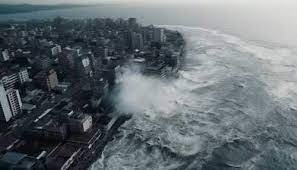
A tsunami prediction made by Japanese manga artist and self-proclaimed clairvoyant Ryo Tatsuki has sparked widespread fear and triggered a sharp drop in travel bookings to Japan, particularly from East Asian countries. The prophecy, which forecasts a catastrophic tsunami in July 2025, has gone viral on social media, leading to panic and misinformation that is now affecting Japan’s tourism sector.
According to Japan Daily, some regions have seen travel bookings plunge by nearly 50% amid the growing hysteria. Travel agencies and airlines are reportedly adjusting their operations in response to the wave of cancellations and public anxiety.
Who is Ryo Tatsuki?
Ryo Tatsuki is not a scientist, but a manga artist known for her cult-favorite book The Future I Saw, published in 1999. The book gained renewed attention for allegedly predicting real-world events through dream-based visions. Tatsuki’s work, especially the 2021 update, includes a prediction about a massive undersea rupture between Japan and the Philippines in July 2025, triggering a devastating tsunami and potential volcanic eruptions.
Her minimalistic and straightforward narrative style—presenting unfiltered visions without interpretation—has led many followers to believe in the authenticity of her claims. With growing public interest, she has been dubbed the “New Baba Vanga,” in reference to the famed blind Bulgarian mystic known for her predictions.
Expert Warnings Against Misinformation
Despite the frenzy, experts have dismissed the prophecy, warning that there is no scientific method available to predict the timing or location of earthquakes.
Sekiya Naoya, a disaster prevention expert at the University of Tokyo, emphasized, “There is no way, with today’s science, to predict exactly when and where an earthquake will occur.” He added that even if an earthquake were to happen in July, it would be purely coincidental and should not be linked to the prophecy.
Miyagi Governor Yoshihiro Murai also addressed public fears during a press conference on April 23. “Unscientific claims like these can significantly damage tourism and public morale,” he said, urging people to trust science and verified sources of information.
Tourism Industry Reacts
Japan’s tourism industry, which has been on a recovery path following the COVID-19 pandemic, is now faced with the dual challenge of addressing misinformation while reassuring travelers. Tourism boards and agencies are ramping up efforts to provide accurate information and are encouraging tourists to continue with their travel plans.
As the July 2025 date looms, authorities are urging the public to remain calm and not fall prey to unverified and sensationalist content circulating online.
Sources By Agencies


